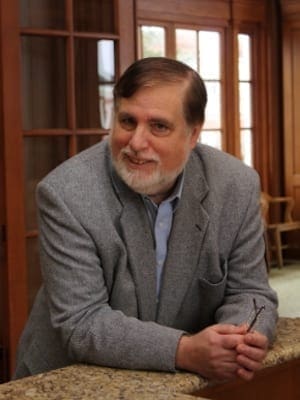Human rights concerns should receive constant and consistent attention across the Christian community.
The Christian witness, as part of the Judeo-Christian tradition, bears an ancient witness as well as the clear teachings of Jesus and the apostolic community.
Moreover, there is a consistent concern for community and society in the centuries of Christian history.
And importantly, the majority of the architects of the Universal Declaration of Human Rights (UDHR) were practicing Christians.
Christian support for human rights is deeply embedded in the Torah and the prophets. Almost all religious commentators call attention to the implications of human creation in the imago dei of Genesis 1:26, 27.
Not to be dismissed are the numerous prophetic declarations of Yahweh’s concern for the poor, strangers and marginalized.
In contemporary discourse, reference is frequently made to Jesus’ “Nazareth Manifesto” in which he gave the Beatitudes and underscored his concern especially for the poor.
The debates recorded in Acts and the epistles over religious practices reveal a growing concern for tolerating diverse positions within the Christian community and the sensitive treatment of non-Christian voices, such as those whom the Apostle Paul encountered in Athens.
Although one must account for extreme violations of human rights in grievous episodes like Christian anti-Semitism, the Crusades, slaveholding, colonialism and apartheid, the record is also replete with Christian social concern for the poor, religious freedom and care for the sick and underprivileged in society.
This reached a peak in the Pietist tradition, Samuel Wesley and his sons, John and Charles Wesley, and 19th century Christian social reform movements.
The Methodist Social Creed of 1908 and the concurrent developing theology of Walter Rauschenbusch and the social gospel were compelling precursors to 20th century Christian support for human rights.
O. Frederick Nolde, an American Lutheran active in the pre-World War II Church Council on International Affairs, was responsible for widespread Christian support for the establishment of the United Nations and the inclusion of a religious foundation for human rights in its agenda.
The period from the 1950s through the 1980s reflects a sustained response of the Christian community through the World Council of Churches, national councils of churches in the Americas and Europe, Vatican II and the Lausanne Movement to the issues raised in the U.N. conventions.
Virtually every Christian family of churches today has some degree of expressed concern for human rights, or as some would put it, Christian responsibilities under God.
Not so obvious in general historical accounts of the UDHR is the solid Christian identity of its major architects.
From the 1930s, in the face of mounting threats of totalitarian regimes and blatant militarism, an array of Christian groups – Lutherans, Reformed, Baptists, Disciples and Methodists – all sought ways and means to express their concern for protecting human dignity and freedoms.
One of the outgrowths of this period was the developing vocabulary of “human rights,” actually much advanced by Winston Churchill, an Anglican Christian.
An outstanding example of a statement that emerged to guide overall discussions was the American Baptist Bill of Rights, issued by three major Baptist groups in 1939 – Southern Baptists, Northern Baptists and National Baptists.
It asserted “religious liberty was not only an inalienable human right, but indispensable to human welfare, taking a stand for civil states with full liberty in religious concernments.”
The special group of thinkers and doers who were entrusted with crafting the declaration is an impressive combination of Christian efforts.
Eleanor Roosevelt, who chaired the United Nations Commission on Human Rights, was a lifelong Episcopalian, deeply engaged in issues like universal brotherhood, interracial cooperation, ecumenical and interfaith conversations and cooperation.
Likewise Charles Malik, a Lebanese Christian, was responsible for the phraseology leading to the right to change one’s religion. He later became an important spokesman in the evangelical community.
And John Humphrey, who is largely credited with actually writing the text, was an active member of the United Church of Canada and identified with campaigns against slavery, stateless persons and in favor of the rights of women and refugees.
Each year, as special days are set aside for reflecting upon and responding to human rights concerns, Baptists in particular need to stand and be counted.
Great devotees of religious liberty, Baptists are often a lead voice in championing the most basic of all human rights, the freedom to believe, practice and freely propagate one’s religious views.
As the earliest Baptists, John Smyth and Thomas Helwys would have affirmed that where religious freedom is curtailed, denied or even “tolerated,” the foundation of all other human rights quickly erodes.
William H. Brackney is the Millard R. Cherry Distinguished Professor of Christian thought and ethics at Acadia University and Acadia Divinity College in Nova Scotia. Brackney’s latest book provides perspectives on human rights found in the major world religions.
Editor’s note: The Baptist World Alliance is encouraging churches to observe Human Rights Day on Dec. 7-8 and has provided several resources that are available here.

